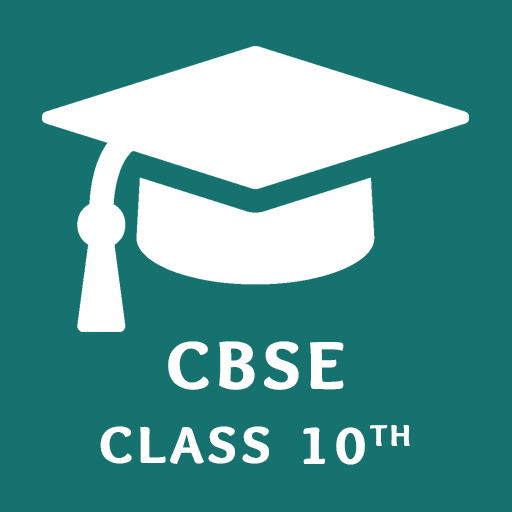Aug 7, 2018
CBSE-ENGLISH CLASS 11 SYLLABUS DETAILS
The CBSE (Central Board of Secondary Education) class 11 English syllabus comprises the following components:
1. Reading Skills:
- Multiple unseen passages (including prose and poetry) with a variety of comprehension questions (including vocabulary, inference, and literary analysis).
2. Writing Skills and Grammar:
- Formal and informal letter writing (complaints, inquiries, applications, etc.)
- Articles, determiners, and prepositions
- Sentence transformation (based on various grammatical structures)
- Editing and omission tasks
- Rearranging sentences to form coherent paragraphs
- Note-making and summarizing
- Dialogue writing
- Speech writing
3. Literature:
- Prose: Detailed study of two prose texts from the prescribed textbook, including short and long answer questions, vocabulary, and writing tasks.
- Poetry: In-depth analysis of selected poems from the prescribed textbook, including critical appreciation, interpretation, and poetic devices.
- Supplementary Reading Text: One out of two prose texts from the prescribed supplementary textbook with short answer questions and writing tasks.
4. Drama:
- Study of one play from the prescribed textbook, including character analysis, plot summary, and questions related to the theme, setting, and dramatic techniques.
5. Fiction:
- Study of one novel from the prescribed textbook, including character sketches, plot summary, and questions related to the theme, narrative techniques, and social context.
6. Writing Section:
- Long writing tasks like article writing, speech writing, report writing, and story writing (based on given outlines or prompts).
7. Literature Textbooks:
- Hornbill (Prose)
- Snapshots (Supplementary Reader)
- Woven Words (Supplementary Reader)
The class 11 English syllabus aims to develop students' reading, writing, grammar, and critical thinking skills. It focuses on literary analysis, comprehension, and effective communication through various writing tasks. The syllabus may vary slightly depending on the school and academic year, so it is advisable to refer to the official CBSE guidelines and prescribed textbooks for the most accurate and up-to-date information.
CBSE-ENGLISH CLASS 10 SYLLABUS
The CBSE (Central Board of Secondary Education) class 10 English syllabus includes the following components:1. Reading Skills:- Two unseen passages with a variety of comprehension questions (including vocabulary and inference-based questions).2. Writing Skills:- Formal letter writing (complaints, inquiries, placing orders, etc.)- Informal letter writing (personal letters, congratulations, condolences, etc.)- Email writing (informal and formal)- Notice writing- Advertisement writing- Poster making3. Grammar:- Tenses (present, past, future)- Modals (can, could, may, might, should, etc.)- Active and passive voice- Reported speech (direct and indirect)- Clauses (noun clauses, adverbial clauses, relative clauses, etc.)- Prepositions and conjunctions- Sentence transformation (changing sentences from one form to another)4. Literature:- Prose: Two prose extracts from the prescribed textbook with short answer questions, vocabulary, and writing tasks.- Poetry: One poem from the prescribed textbook with questions based on interpretation, literary devices, and poetic comprehension.- Supplementary Reading Text: One out of two prose extracts from the prescribed supplementary textbook with short answer questions and vocabulary.5. Writing Section:- Short writing tasks like diary entries, character sketches, story writing (based on given outlines), paragraph writing, etc.6. Literature Textbook:- First Flight (Prose)- Footprints Without Feet (Supplementary Reader)The class 10 English syllabus aims to enhance students' reading, writing, grammar, and literary analysis skills. It covers a range of topics and exercises to develop a comprehensive understanding of the English language and literature. Please note that the syllabus may vary slightly depending on the school and academic year, so it is always advisable to refer to the official CBSE guidelines and textbooks for the most accurate information.
CBSE- ENGLISH CLASS 9 SYLLABUS
The CBSE (Central Board of Secondary Education) class 9 English syllabus includes the following components:
1. Reading Skills:
- Two unseen passages with a variety of comprehension questions (including vocabulary and inference-based questions).
2. Writing Skills:
- Formal letter writing (applications, official letters, etc.)
- Informal letter writing (personal letters, invitations, etc.)
- Email writing (informal and formal)
3. Grammar:
- Tenses (present, past, future)
- Modals (can, could, may, might, should, etc.)
- Reported speech (direct and indirect)
- Clauses (noun clauses, adverbial clauses, relative clauses, etc.)
- Sentence transformation (changing sentences from one form to another)
4. Literature:
- Prose: Two prose extracts from the prescribed textbook with short answer questions, vocabulary, and writing tasks.
- Poetry: One poem from the prescribed textbook with questions based on interpretation, literary devices, and poetic comprehension.
5. Writing Section:
- Short writing tasks like diary entries, story writing (based on given outlines), paragraph writing, etc.
6. Literature Textbook:
- Beehive (Prose)
- Moments (Supplementary Reader)
The class 9 English syllabus aims to develop students' reading, writing, grammar, and literary analysis skills. It provides a foundation for effective communication and understanding of English language and literature. The syllabus may vary slightly depending on the school and academic year, so it is always advisable to refer to the official CBSE guidelines and textbooks for the most accurate information.
Subscribe to:
Comments (Atom)
My Childhood by APJ Abdul Kalam class 9 english for cbse board
My Childhood by A.P.J. Abdul Kalam – Full Quiz My Childhood by A.P.J. Abdul Kalam – Full Quiz 1. Who is the author of "M...
-
" Dust of Snow " is a short poem by Robert Frost that explores the transformative power of nature's beauty and its ability t...
-
Title: "The Proposal" (Play) - Summary and Critical Appreciation Summary: "The Proposal" is a one-act play written by A...
-
" For Anne Gregory " is a poem by William Butler Yeats that explores the themes of beauty, identity, and the subjective nature o...







